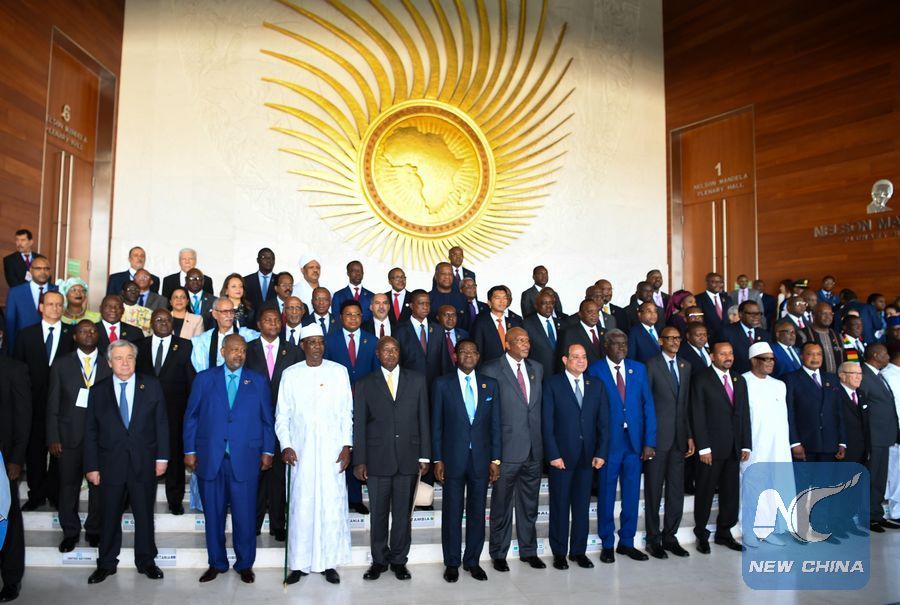
File photo shows participants take a group photo during the 32nd African Union (AU) summit of heads of state and government in Addis Ababa, Ethiopia, on Feb. 10, 2019.(Xinhua/Li Yan)
ADDIS ABABA, Feb. 11 (Xinhua) -- Peter Sands, Executive Director of the Global Fund to Fight AIDS, Tuberculosis and Malaria on Sunday hailed the organization's health cooperation with China.
Speaking to Xinhua in an exclusive interview on the sidelines of the 32nd African Union summit, Sands said the fund has been working with the Chinese government in the treatment and prevention of AIDS, tuberculosis and malaria.
The Global Fund is involved in the treatment and prevention of the three diseases in Asia, Middle East and Africa, and Africa takes up around 80 percent of the fund's 4 billion U.S. dollars annual expenditure in the health sector.
"China does valuable contributions in the health area. China not only has the resources but also the technical expertise including the production of pharmaceutical drugs," said Sands.
The fund sources medicines from Chinese pharmaceutical firms, he said, applauding Chinese success in fighting malaria, which serves as an example to Africa.
He said the fund plans to showcase China's successful experience in fighting malaria to African countries struggling with malaria outbreaks.
"Malaria is a good example of how China's strength can be leveraged even more effectively in African countries," said the Global Fund chief.
The fund is also working with pharmaceutical manufacturers to make AIDS, tuberculosis, malaria medicines as well as diagnostic tools and bed nets more affordable to people in need.
With the Global Fund also active in helping refugees and Internally Displaced Persons (IDPs), Sands was keen to emphasize his organization wants to work with China to help the most vulnerable sections of the society.
"Refugees and IDPs are vulnerable to infectious diseases, as they have reduced access to health services, live in confined situations and are under enormous stress," he said.
The Fund is working with partners including government, UN agencies and international organizations to ensure treatment and prevention activities are given to vulnerable populations who are at risk of contracting infectious diseases," said the Global Fund chief.
Sands said the organization believes the health partnership with China especially to help vulnerable populations in Africa is just beginning and has many promising initiatives to come.
The fund's experience and network in the fight against malaria, tuberculosis and AIDS, combined with China's skills and expertise in the health sector, can further improve the health of people in Africa and beyond, said Sands.
Founded in 2002, the fund is a partnership between governments, civil society, the private sector and people affected by the diseases.
The fund raises and invests nearly 4 billion U.S. dollars a year to support programs run by local experts in countries and communities most in need, according to its website.

